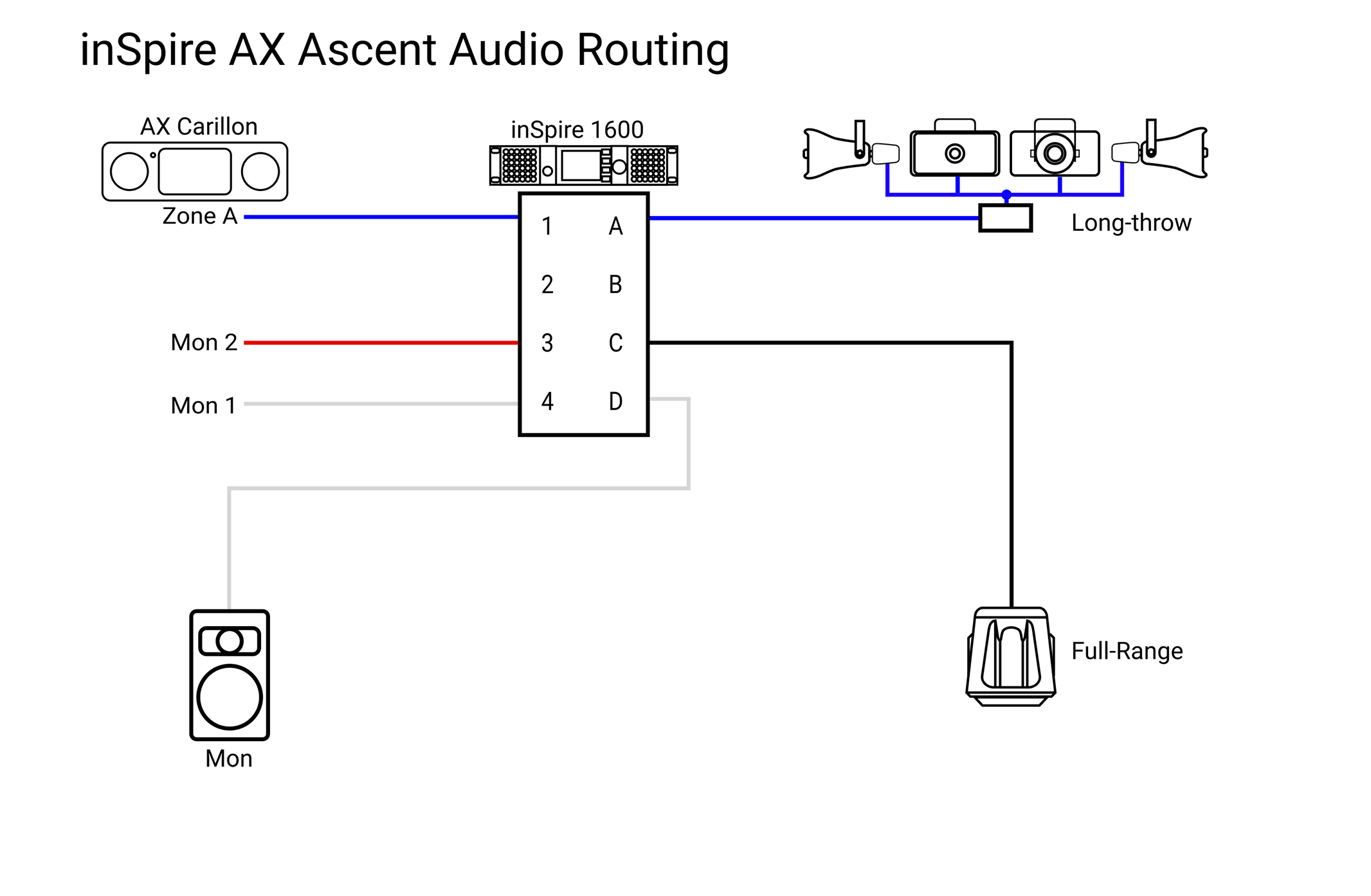Connect inSpire Ascent AX: Difference between revisions
(trademark usage) |
|||
| Line 1: | Line 1: | ||
== inSpire Outreach AX == | == inSpire Audio™ Outreach AX == | ||
This package includes a digital amplifier with DSP tuned to drive four long-throw mid-high frequency horns. Additional amplifier outputs are provided for optional | This package includes a digital amplifier with DSP tuned to drive four long-throw mid-high frequency horns. Additional amplifier outputs are provided for optional | ||
| Line 11: | Line 11: | ||
[[File:InSpireAXAscentRouting.png|frameless|right|600px]] | [[File:InSpireAXAscentRouting.png|frameless|right|600px]] | ||
=== inSpire AX | === inSpire Audio™ Ascent AX hookup instructions === | ||
Download illustrated hookup diagrams: | Download illustrated hookup diagrams: | ||
;One single output zone (up to four long-throw horns) | ;One single output zone (up to four long-throw horns) | ||
Revision as of 16:00, 3 January 2020
inSpire Audio™ Outreach AX
This package includes a digital amplifier with DSP tuned to drive four long-throw mid-high frequency horns. Additional amplifier outputs are provided for optional
- Full-range tower speaker upgrade
- Inside monitoring speaker
The amplifier is factory programmed with the same parameters as the Ascent package below so use the Ascent hookup instructions.
inSpire Ascent AX
- inSpire Ascent System specification
inSpire Audio™ Ascent AX hookup instructions
Download illustrated hookup diagrams:
- One single output zone (up to four long-throw horns)
- Two audio cables without directional tower volume control
- Use amplifier preset AX16OA
- Directional outside zones (up to three long-throw horns each zone)
- Three audio cables for directional tower volume control
- Use amplifier preset AX16OAD
The volume level settings in the AX virtual bell instrument can be found in the settings menu.
- Use Zone A level for the loud side
- Use Zone B level for the quieter side
- Use Monitor 1 level for the optional inside speaker if connected
Tower speaker connections
- Secure speakers according to instructions enclosed in packing using supplied hardware as required.
- Connect supplied pigtails to horn drivers before screwing the drivers into the horns. Note that low impedance drivers are normally supplied with two terminal screws. Do not move the screws to non-functioning 70V terminals.
- Bring the pigtails from each horn to the supplied junction box. Bring the mid-range channel supply cable from the amplifier (Channels A and B outputs are paralleled with the supplied jumpers) into the junction box. Connect all five of the white wires together, then all of the black wires together using two of the larger brass set-screw wire-nuts and covers. Orient the threaded part of the brass insert toward the wire insulation. Tighten the set-screw and trim excess wire from the end of the insert before screwing on the wire-nut cover.
- Remove the 70V Jumper on from the terminal on the full-range horn.
- Connect the full-range channel supply cable from the amplifier (Channel C) to the full-range horn. Connect the white wire to the COM terminal, and the black wire to the 4 Ohm voice coil terminal.
